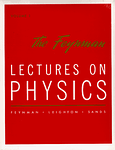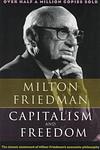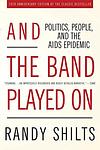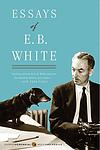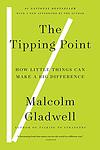The Greatest American "Nonfiction" Books Since 1950
Click to learn how this list is calculated.
This list represents a comprehensive and trusted collection of the greatest books. Developed through a specialized algorithm, it brings together 294 'best of' book lists to form a definitive guide to the world's most acclaimed books. For those interested in how these books are chosen, additional details can be found on the rankings page.
Genres
Countries
Date Range
Reading Statistics
Click the button below to see how many of these books you've read!
Download
If you're interested in downloading this list as a CSV file for use in a spreadsheet application, you can easily do so by clicking the button below. Please note that to ensure a manageable file size and faster download, the CSV will include details for only the first 500 books.
Download-
26. Angela's Ashes: A Memoir by Frank McCourt
This memoir is a profound and heart-wrenching account of the author's impoverished childhood in Limerick, Ireland, during the 1930s and 1940s. The story is filled with tales of survival in the face of extreme poverty, an alcoholic father, a struggling mother, and the deaths of three siblings. Despite the harsh circumstances, the narrative is infused with a sense of humor and hope, demonstrating the resilience of the human spirit.
-
27. A Distant Mirror by Barbara Tuchman
"A Distant Mirror" is a historical narrative that vividly depicts the calamitous 14th century, a time marked by the Black Death, religious strife, and the Hundred Years War. The book follows the life of a French nobleman, offering a detailed account of his experiences and the broader social, political, and cultural transformations of the era. The author draws parallels between the 14th century and the 20th century, highlighting recurrent patterns in history such as warfare, pandemics, and societal unrest.
-
28. The Feynman Lectures on Physics by Richard P. Feynman
This book is a comprehensive collection of lectures on physics by a renowned physicist, covering everything from classical mechanics to quantum mechanics, electromagnetism, and statistical mechanics. These lectures, designed to be accessible to those without a deep background in the subject, offer a unique and insightful perspective on the fundamental principles of physics, combining rigorous scientific explanation with engaging anecdotes and analogies. The book is widely regarded as an essential resource for anyone interested in or studying the field of physics.
-
29. The Power Broker by Robert Caro
This book is a biography of Robert Moses, a powerful figure in New York City and state politics, who wielded immense influence over the urban development of the area in the mid-20th century. Despite never holding elected office, Moses was responsible for the creation of numerous parks, highways, bridges, and public works throughout the city and state. The book delves into the methods Moses used to achieve and maintain his power, his impact on the city, and the controversial legacy he left behind.
-
30. Notes of a Native Son by James Baldwin
This book is a collection of essays that vividly capture the author's life in Harlem, his travels in Europe, and his views on everything from the sweet music of black church revivals to the biting prejudice of the 'then' contemporary world. It's an exploration of racial, sexual, and class distinctions in both Western societies and the American society. The author's reflections on his experiences as a black man in white America are profoundly insightful and continue to resonate today.
-
31. The Snow Leopard by Peter Matthiessen
"The Snow Leopard" is a travelogue that recounts the author's two-month journey in the Himalayas with naturalist George Schaller. The duo trek through the rugged and remote mountains of Nepal on a quest to study the rare blue sheep and possibly spot the elusive snow leopard. The book is as much a spiritual journey as it is a physical one, with the author seeking solace and understanding following the death of his wife. The narrative explores themes of grief, nature, and Buddhism, offering a poignant and introspective look at life and loss.
-
32. Capitalism and Freedom by Milton Friedman
This book explores the role of competitive capitalism - the organization of the bulk of economic activity through private enterprise operating in a free market - as both a device for achieving economic freedom and a necessary condition for political freedom. The author further examines how freedom could be preserved in a society where the roles and importance of government are ever expanding, and presents his view on topics such as monetary policy, fiscal policy, education, discrimination, and the alleviation of poverty.
-
33. The Guns of August by Barbara Tuchman
"The Guns of August" is a detailed and engaging account of the first month of World War I. The book explores the events leading up to the war, the political and military strategies of the various countries involved, and the critical decisions that shaped the course of the conflict. It presents a vivid picture of the war's early stages, highlighting the miscalculations, miscommunications, and misunderstandings that led to one of the most devastating wars in history.
-
34. Henry James by Leon Edel
This book is an in-depth biography of one of the most influential writers of the 19th century. The author meticulously details the life and work of the subject, from his early years in New York and his extensive travels in Europe, to his eventual settling in England and his career as a writer. The book delves into his relationships with family, friends, and fellow writers, as well as his own struggles with identity and sexuality. It also provides a comprehensive analysis of his novels, novellas, and short stories, highlighting his unique narrative style and his exploration of complex themes such as consciousness, morality, and social class.
-
35. The Making of the Atomic Bomb by Richard Rhodes
This comprehensive book provides an in-depth account of the development of the atomic bomb during World War II. It explores the scientific advancements that made the bomb possible, the political decisions that led to its creation, and the moral dilemmas faced by the scientists involved. The book also details the personalities of key figures in the Manhattan Project, the effects of the bomb on Hiroshima and Nagasaki, and the impact of nuclear weapons on the world.
-
36. The Mismeasure of Man by Stephen Jay Gould
The book is a critical analysis of the history of scientific racism and biological determinism, the belief that social and economic differences among human races, sexes, and classes are inheritable, inevitable, and natural. It challenges the idea that intelligence can be measured accurately and placed in a single, linear scale. The author refutes the arguments of those who support these theories, arguing that they are based on flawed methodologies, biased data, and unverifiable assumptions. Instead, he proposes that intelligence is multifaceted and cannot be quantified simplistically.
-
37. A Heartbreaking Work of Staggering Genius by Dave Eggers
A Heartbreaking Work of Staggering Genius is a memoir that follows the life of a young man who, after the cancer-related deaths of his parents, is tasked with raising his 8-year-old brother. The book explores themes of death, family, and the responsibilities that come with sudden adulthood. It is a testament to the strength of the human spirit, showcasing the protagonist's journey through grief, financial struggles, and the challenge of raising a child, all while trying to navigate his own young adulthood.
-
38. The Liberal Imagination by Lionel Trilling
"The Liberal Imagination" is a collection of essays that scrutinize and challenge the ideas, politics, and cultural norms of liberal society. The author argues that liberalism often simplifies complex issues and overlooks the inherent contradictions and conflicts in human life. Using literature as a tool, he delves into the nuances of these issues and encourages readers to engage in critical thinking and self-examination. The book is a profound exploration of the strengths and weaknesses of liberal thought and its impact on society.
-
39. Desert Solitaire by Edward Abbey
Desert Solitaire is a collection of vignettes about life in the wilderness that reflects on the fierce beauty of the desert, the cruel indifference of nature, and the reckless destruction of the American West. The book, based on the author's experiences as a park ranger in Utah, explores the spiritual and philosophical dimensions of the desert environment, critiquing the commercialization and urbanization of the wild, and underscoring the importance of preserving natural landscapes.
-
40. The Great Railway Bazaar by Paul Theroux
"The Great Railway Bazaar" is a travelogue in which the author embarks on a four-month journey by train from London through Europe, the Middle East, the Indian subcontinent, Southeast Asia, and Siberia, and then back to Europe. The book is a vivid and insightful account of the people, cultures, landscapes, and experiences encountered during the journey, painting a unique picture of the world as seen from the perspective of a train window. The author's sharp observations and engaging storytelling make this journey as much an inner exploration as a geographical one.
-
41. Gödel, Escher, Bach by Douglas Hofstadter
The book explores concepts of formal systems, recursion, self-reference, and infinity through the interdisciplinary lens of mathematics, art, and music. The narrative intertwines biographical sketches of the titular figures - a mathematician, an artist, and a composer - with dialogues and discussions to illustrate complex ideas. The author uses these figures as metaphors to delve into the nature of human cognition and consciousness, suggesting that our minds are essentially self-referential systems akin to the works of Gödel, Escher, and Bach.
-
42. The Executioner's Song by Norman Mailer
"The Executioner's Song" is a true crime novel that tells the story of Gary Gilmore, a man who, after being released from prison, embarks on a murder spree in Utah that leads to his capture and execution. The book delves into Gilmore's troubled life and psyche, his relationships, and the legal and moral debates surrounding his death sentence. It provides an in-depth look at the American criminal justice system and capital punishment.
-
43. The Great War and Modern Memory by Paul Fussell
"The Great War and Modern Memory" is a critical analysis of the impact of World War I on the English society and culture. The author explores the war's influence on literature, language, and symbolism, arguing that the horrific experiences of the war drastically altered public perception and understanding of conflict, honor, and heroism. The book combines literary criticism, history, and social commentary to provide a comprehensive examination of the war's lasting effects on the collective memory of the English-speaking world.
-
44. And the Band Played On by Randy Shilts
This book is a comprehensive chronicle of the emergence of the AIDS epidemic in the United States in the 1980s. It explores how the disease was initially ignored by many health professionals and politicians, leading to its spread and the deaths of thousands of people. The book also examines the impact of the disease on the gay community and the role of various institutions, including the medical community, the media, and the government, in responding to the crisis. It's a powerful critique of the indifference and negligence that allowed the disease to become a global pandemic.
-
45. A Theory of Justice by John Rawls
This book presents a seminal work in modern political philosophy, where the author proposes a model of justice that, despite being egalitarian, respects individual rights. The author's "veil of ignorance" thought experiment, which suggests designing society from an original position where no one knows their future place in society, has been particularly influential. The author argues that this would lead to a system where each individual is assured basic liberties and socio-economic inequalities are only allowed if they benefit the least advantaged members of society.
-
46. Guns, Germs, and Steel by Jared Diamond
The book is a comprehensive exploration of the different trajectories of human societies throughout history. It argues that environmental factors, rather than racial or cultural differences, are the primary reason why some societies developed more advanced technology and political systems. The author uses a multidisciplinary approach, drawing from fields such as geography, evolutionary biology, and linguistics, to support his thesis. The book covers a wide range of topics, including the domestication of plants and animals, the invention of writing, and the spread of diseases.
-
47. The Fire Next Time by James Baldwin
This book is a powerful exploration of race relations in America in the early 1960s. The author presents his experiences and observations in the form of two essays. The first is a letter to his 14-year-old nephew, discussing the role of race in American history. The second essay takes a broader look at the civil rights movement and the author's own experiences with religion and identity. Throughout, the author presents a passionate plea for the recognition of the humanity and dignity of all people, regardless of race.
-
48. Blue Highways: A Journey into America by William Least Heat-Moon
This travel memoir follows the author's journey through the backroads of the United States, which he refers to as "Blue Highways" on maps. After losing his job and separating from his wife, he embarks on a 14,000-mile trip, steering clear of cities and interstates to explore small towns and meet their inhabitants. The narrative offers a poignant and introspective exploration of America's landscapes, history, and diverse cultures, providing a unique perspective on the country's lesser-known regions.
-
49. Essays of E. B. White by E. B. White
This book is a collection of essays written by a renowned American writer, offering a wide range of topics including nature, politics, literature, and personal experiences. The author's distinct style of writing, characterized by wit, humor, and profound insight, is evident throughout the book. The essays serve as a reflection of the author's thoughts and observations about life, society, and the world, providing readers with an intimate look into his mind and perspective.
-
50. The Tipping Point by Malcolm Gladwell
This book explores the concept of "tipping points," or the specific moment when an idea, trend, or social behavior crosses a threshold and spreads like wildfire. It delves into the science behind epidemics, both in terms of diseases and ideas, and dissects the factors that can cause a sudden shift in public consciousness. The author uses various case studies, from the sudden popularity of certain shoes to the decrease in New York City's crime rate, to illustrate these concepts.
Reading Statistics
Click the button below to see how many of these books you've read!
Download
If you're interested in downloading this list as a CSV file for use in a spreadsheet application, you can easily do so by clicking the button below. Please note that to ensure a manageable file size and faster download, the CSV will include details for only the first 500 books.
Download

